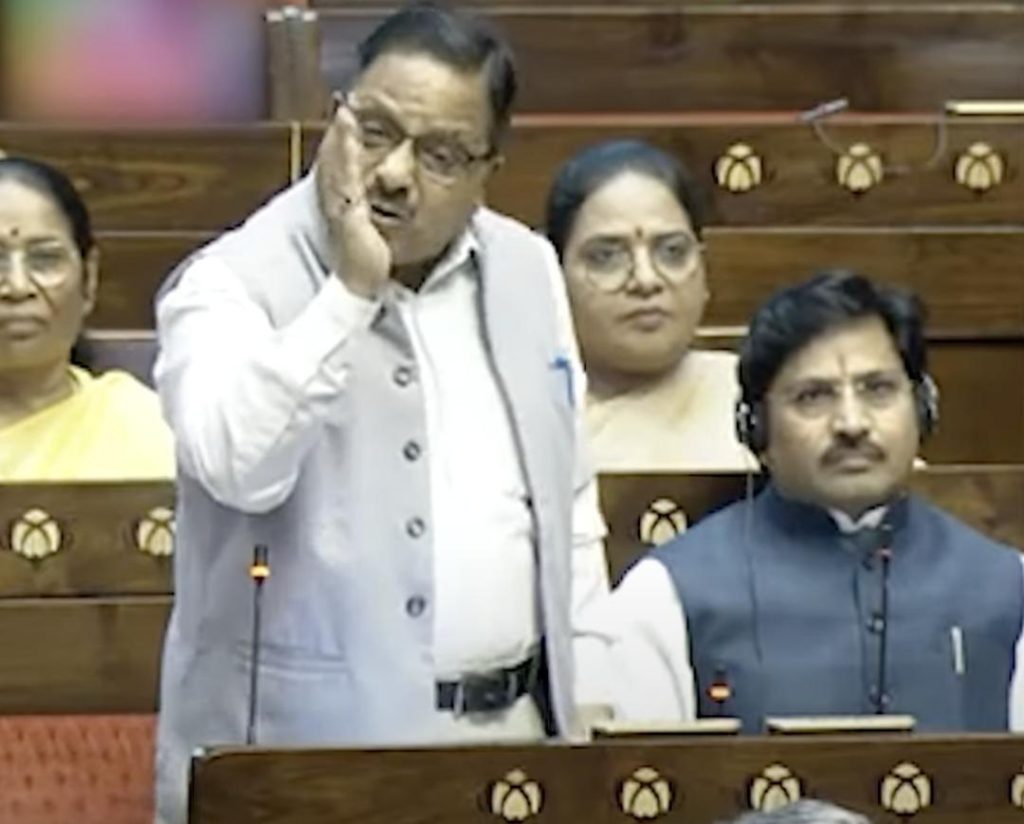
Should I read Quran & tell you what’s written in it: BJP MP Radha Mohan Das on Waqf Bill
The Waqf Bill, a contentious piece of legislation aimed at reforming the management of charitable trusts in India, has sparked heated debates in the country. Recently, during a discussion on the bill in the Lok Sabha, BJP MP Radha Mohan Das made a surprising statement that has left many wondering about his intentions. In a rather unexpected turn of events, Das asked if he should read the Quran and tell the House what is written in it.
Das’s statement was in response to the controversy surrounding the Waqf Board’s management of its properties. The Waqf Board, responsible for managing charitable trusts and properties, has been accused of mismanagement and lack of transparency. Das, in his argument, pointed out that the Quran emphasizes the importance of maintaining written records for all transactions, including financial ones.
“According to the Quran, if one rupee is given to anyone, there should be a written record,” Das said. “And you say you have so many properties without a record.” He went on to suggest that if he were to read the Quran, he would be able to enlighten the House about the importance of keeping records.
Das’s statement has sparked a mix of reactions, with some interpreting it as a genuine attempt to understand the Quran and its teachings, while others have criticized him for using religion to score political points. The debate surrounding the Waqf Bill has always been contentious, with both proponents and opponents of the bill citing scriptural references to justify their stance.
The Waqf Bill aims to bring transparency and accountability to the management of Waqf properties, which are estimated to be worth over Rs 1 lakh crore. The bill seeks to replace the existing Waqf Boards with new ones, which would be responsible for managing the properties and ensuring that they are used for the benefit of the community.
However, the bill has been opposed by many, including the opposition parties, who claim that it is an attempt to undermine the autonomy of the Waqf Boards and impose a uniform law on all states. They argue that the bill does not take into account the diversity of Waqf properties across different states and regions.
Das’s statement about reading the Quran has only added fuel to the fire. While some have appreciated his willingness to engage with religious texts, others have criticized him for using religion to justify his political views. The debate surrounding the Waqf Bill has always been marked by religious overtones, with both sides citing scriptural references to justify their stance.
The controversy surrounding the Waqf Bill and Das’s statement highlights the complex interplay between religion and politics in India. The debate is not just about the merits of the bill, but also about the role of religion in public life and the way it is used to justify political positions.
In recent years, there has been a growing trend of using religious texts and symbols to justify political views. This trend has been particularly evident in the run-up to elections, where politicians often resort to religious rhetoric to attract votes.
Das’s statement about reading the Quran may have been an attempt to use religion to justify his opposition to the Waqf Bill. However, it also highlights the need for a more nuanced understanding of religion and its role in public life.
Religion is an integral part of Indian society, and it is important that political leaders engage with religious texts and symbols in a responsible and respectful manner. However, it is equally important to recognize that religion is not a tool that can be used to justify political positions or score points.
The Waqf Bill is a complex issue that requires a nuanced understanding of the legal, social, and religious implications. Rather than using religion to justify their stance, politicians should engage in a constructive dialogue that takes into account the diverse perspectives and concerns of all stakeholders.
In conclusion, Das’s statement about reading the Quran has sparked a heated debate about the role of religion in public life. While it is important to engage with religious texts and symbols, it is equally important to recognize that religion is not a tool that can be used to justify political positions or score points. The Waqf Bill is a complex issue that requires a nuanced understanding of the legal, social, and religious implications, and politicians should engage in a constructive dialogue that takes into account the diverse perspectives and concerns of all stakeholders.
News Source:
https://www.youtube.com/watch






